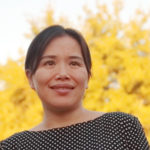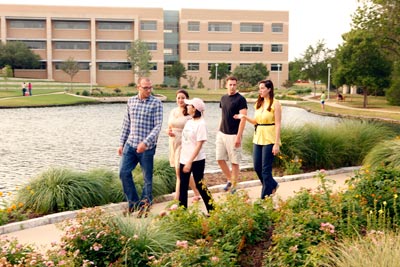Leaders in Higher Education
THIS GUIDE IS NO LONGER ACTIVE. For the current FP Guide, click here.
REN MU, Associate Professor
Texas A&M University, Bush School of Government and Public Service
Developing principled leaders who give back to the community through public service has been one of the cornerstones of Texas A&M University’s Bush School of Government and Public Service since the School was established twenty years ago. That is also part of what inspired Associate Professor Ren Mu, a Chinese economist and specialist in the microeconomic forces shaping people’s decision making in developing countries, to join the faculty a decade ago.

“I emphasize the importance of local context to understanding development issues. I tell students that there are no cookie cutter solutions. Things that work in some places might not work in other places. This concept is crucial to their training.” –Ren Mu, Associate Professor, Bush School, Texas A&M University
“More than ever before, the challenges we face are global in nature, and it is critically important for students of public policy to understand the issues facing developing nations,” says Mu. “They represent 80 percent of the world’s population, and they’re both an important source of economic growth and a critical source of instability and conflict.”
Mu, who holds advanced degrees in law and economics and coordinates the School’s international economic development concentration, was previously a consultant at the World Bank. She says many classes at the Bush School are data-oriented and emphasize analytic skills to help students get a clear, evidence-based understanding of what is happening in various regions.
 In her own teaching, Mu stresses that while data is important for understanding a region, so is firsthand experience. “I emphasize the importance of local context to understanding development issues,” she says. “I tell students that there are no cookie cutter solutions. Things that work in some places might not work in other places. This concept is crucial to their training.”
In her own teaching, Mu stresses that while data is important for understanding a region, so is firsthand experience. “I emphasize the importance of local context to understanding development issues,” she says. “I tell students that there are no cookie cutter solutions. Things that work in some places might not work in other places. This concept is crucial to their training.”
Because the Bush School offers several capstone research projects for students through the Center on Conflict and Development at Texas A&M University, Mu and her colleagues have led several teams to developing countries to do field research. For example, she led a team to Nepal to research the impact of the devastating dual earthquakes of 2015 on education and post-earthquake reconstruction in the region.
The problems Nepal faced in rebuilding after such a crisis were unique, Mu explains, because of the country’s extremely hilly terrain and poor transportation system. “A town that looked so close to our hotel on the map took 10 hours to get to by car because the roads were so bad,” she recalls. Government and international aid to the devastated area took much longer to arrive, if ever, exacerbating the damage associated with destroyed schools and businesses.
Mu’s students combined World Bank data with data they collected from interviewing schoolchildren in six districts of Nepal to help track how damage from the quakes had a negative impact on school enrollment and attendance. “From their research, my students could show their audiences, including the USAID mission office in Kathmandu and the Embassy of Nepal in Washington, D.C., why rebuilding schools after a disaster should be a priority for government and aid organizations,” she says.
Experiences like this are what set the Bush School apart from others, Mu believes. “We are very student-oriented. We have only master’s degree students, so those students get our complete attention and focus. We are a close-knit community, and students have plenty of opportunities to interact with faculty.”
Thanks to the School’s extensive financial resources, Bush School scholarships help support all residential Master of International Affairs (MIA) and Master of Public Service and Administration (MPSA) students. Furthermore, even out-of-state students pay in-state tuition. Students also have access to the courses and experts at Texas A&M’s renowned schools of engineering and agriculture.
Graduate Degree Program Options:
• Master of International Affairs
• Master of Public Service and Administration
• Online Executive Master of Public Service and Administration
Visit the Request Info page to receive information from the schools.
Contents
- Leaders in Higher Education
- Johns Hopkins School of Advanced International Studies (SAIS)
- Georgetown University, Walsh School of Foreign Service
- Stanford University, Freeman Spogli Institute for International Studies
- Texas A&M University, Bush School of Government and Public Service
- New York University School of Professional Studies, Center for Global Affairs
- UC San Diego, School of Global Policy and Strategy
- University of Denver, Josef Korbel School of International Studies
- University of Washington, Henry M. Jackson School of International Studies
- Arizona State University, Center on the Future of War
- Georgetown University School of Continuing Studies
- Syracuse University, Maxwell School of Citizenship and Public Affairs; and Center for Strategic and International Studies
- University of Kent, Brussels School of International Studies
- Sciences Po, Paris School of International Affairs
- Columbia University, School of International and Public Affairs (SIPA)
- The Fletcher School of Law and Diplomacy at Tufts University
- University of Notre Dame, Keough School of Global Affairs
- Arizona State University, Thunderbird School of Global Management